- Home
- Roy J. Snell
Johnny Longbow Page 3
Johnny Longbow Read online
Page 3
CHAPTER III THE KNIFE IN THE TREE
Next morning as they sat munching corn bread and strips of cariboubroiled on the coals, Gordon Duncan put down his coffee cup and turned toJohnny.
"Young man," he began, "in the home of my childhood on the crags of theScottish Highlands, the word stranger spelled welcome. Here we have nohome worthy of the name. Even this we are leaving for the unknown thatlies just beyond. Your way leads down the river; or if you can so shapeyour course that it may be so, we would be glad to have you join us."
There was a gentleness and a warmth in the old man's tone that went tothe boy's heart. Before making reply, however, he turned toward the girl.At once he was rewarded by that frank and friendly smile.
"I am going nowhere in particular," he said. "I am thankful for humancompanionship, more thankful than I can tell. Yesterday I was in a badway. It may be that you have come between me and starvation. I should beungrateful indeed did I not remain with you with a hope that I might insome way repay your kindness."
"Young man," in Gordon Duncan's eyes shone a gleam of light, "in thisworld one seldom repays a kindness, an act of courtesy or a friendly liftalong the way, but one may always pass it on to some other member of thegreat human family. He--but we are talking too long. The trail beckons."
Packs were soon made. Johnny was surprised at the lightness of thesleeping bags used by his friends. "Scarcely five pounds apiece," he toldhimself. Bacon, cornmeal, coffee, a few dried beans, three cans ofcondensed milk, such was the food supply of these wanderers. Each took inhis pack as much caribou as he could comfortably carry. When Johnny sawthat the girl proposed to carry a full third of the load, he offered tocarry her caribou meat.
As she received his offer, her face flushed and her lips parted as ifwith a quick retort. Then, seeming to sense the spirit in which the offerwas made, she allowed those same lips to open in a friendly smile as shesaid:
"I am used to the load. Without it I should not be hungry at noontime. Itis enough if you break trail for us."
Johnny soon realized the truth of this last remark. The effect of theslight thaw of two days before was gone. The snow on the slopinghillside, hard packed as it was by many an Arctic blast, offered asurface so smooth and hard that more than once his feet shot from beneathhim and he went speeding straight down to the gentler slopes a hundredfeet below.
To avoid following his example the old man with his hunting knife cutsteps across the perilous places.
Noon found them nearing a clump of pines. As they came close to it, someobject quite like a rolling ball of snow moved swiftly before them.
At once Faye's pack was off her shoulder and her stout arms stringing herbow as she whispered,
"Birds. Ptarmigan. A whole covey of them!"
Next moment she and Johnny were off in swift pursuit.
After a half hour's exciting chase, they returned with four of thesewhite quail of the Arctic. To Johnny's chagrin, Faye had out-shot himthree to one.
"But you are not used to these birds," she said generously. "You'll learnsoon enough."
The days were growing long. There seemed little reason for haste. For,where were they going, after all? They took time to build a fire andprepare a hearty meal. The birds they saved for supper. For the presentthey feasted on caribou meat.
"It is well," said Gordon Duncan, "to build up muscle, fat and bone whileyou may. So you will be able in the time of want to withstand the pangsof hunger. Savage people everywhere know this. We in our sleekcomplacency of plenty too soon forget."
It was mid-afternoon when the thing happened which was destined to changethe entire order of their lives and carry them away on a mad quest thatmight well end in disaster and death.
It often happens as one travels along life's pathway that he comes of asudden to that which is to change the very nature of his being. But doeshe know it? More often than otherwise he does not. It was even so now. Asthe wandering trio came over the crest of a ridge and began to descendinto a valley down a narrow run that led them back to the river, they sawbefore them a scraggy pine of unusual height. Surrounded as it was by alow growth of cottonwoods, it seemed a beacon.
To one member of the party it was a beacon. Hardly had Gordon Duncan'seyes fallen upon it than he suddenly pressed a hand to his forehead toexclaim:
"The tree! As I live! The very tree!"
"Why Grandfather! What--" The girl looked at him in alarm.
He was gone. Leading on at a pace that was hard to follow, he headeddirectly for the lone pine.
Once there, he dropped on hands and knees to point at some objectprotruding from the gnarled trunk of the giant tree.
"The knife!" he said hoarsely. "The knife!"
At that he fell backward, panting for breath.
All the splendid color left Faye Duncan's cheeks as she bent over hisprostrate form and began struggling with the buttons of his mackinaw andshirt.
"It's his heart," she said. "There's nothing much we can do. He'll comeround presently. But some day--"
She did not finish, but the wrinkles that came in her brow told all.
"But what does it mean?" said Johnny pointing to the hilt of a huntingknife that protruded a short two inches from the trunk of the pine. "Musthave been there twenty years. A few years more and it would have beencompletely buried."
If Faye Duncan knew what that knife meant and why it had stirred up suchviolent emotions in her grandfather's breast, she did not say so. She satstaring at the thing that had brought tragedy so near.
Giving up the problem, Johnny kindled a small fire, then put water on toboil for coffee.
Presently the old man sat up to stare dully about him. The instant hiseyes fell upon the knife hilt they were alight once more.
"Twenty-one years!" he muttered, pressing his forehead once more."Twenty-one years! All these years, and now I have found it--perhaps toolate."
At that he began fumbling at an inside coat pocket. In the end he drewforth a small square packet. Having unrolled a wad of thin oiled cloth,he unfolded a square of soft white skin. On this, done perhaps in penciland later traced with India ink, were many lines and strangely shapedfigures. Here and there words were written.
Drawn involuntarily to his side, the boy and girl stared at the map withsurprised and eager eyes.
Johnny read words written there: "The river," "Mountains," "The Pass,""The cabin," he read. And last, but not least, "Green Gold."
Apparently quite unconscious of their presence, the old man placed atrembling finger on a certain spot and mumbled:
"We are here. The trail leads downstream, four miles perhaps. The riverforks there. We cross the river below the fork, and ascend the upperfork. The trail leads over the mountains. The cabin lies beyond themountain, the cabin and green gold. A mine of green gold. That wasTimmie's dream. But then, perhaps he was mad. But there was green gold,quantities of it, and so heavy, so--"
He looked up and for the first time became conscious of Faye and Johnny.
"We've found the tree," he said simply, as if they should know all aboutit. "The trail leads downstream a little way, then across the river."
By the haunted look in her eyes, Johnny read that Faye Duncan knew littleregarding the strange turn affairs had taken.
"It's his heart," she whispered. "We must keep him quiet."
"Yes," she said to Gordon Duncan, "the trail leads downstream. We willtake it to-morrow. For the night we will camp beneath this friendly oldgiant of a tree and rest."
"Rest!" said Gordon Duncan, a great weariness overtaking him. "Rest.That's what we need. And then," with a fresh eagerness, "then the long,long trail. Green gold it was, green like the copper in the bed of thestream, but gold, real gold."
Johnny assisted in arranging a comfortable resting place for him, then henursed his small fire along until it was a laughing, roaring youngconflagration.
"The trail leads downstream and across the river," he thought to
himself."Fine chance!" He could catch the rush of waters a hundred yards away.That was the river. He had tried crossing that rushing torrent once, andhad come near losing his life.
"Never again!" he told himself. "Unless in a boat. And where in all thiswild land does one get so much as a birchbark canoe?"
As if reading his thoughts the old man sat up quite suddenly.
"Somewhere down the river," he said, "the land slopes away into lowhills. Here the river is less rapid. It freezes over. If we get therebefore the breakup, we may cross on the ice. But that," he added, "is along, long trail."

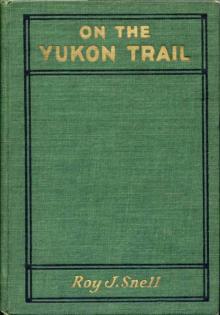 On the Yukon Trail
On the Yukon Trail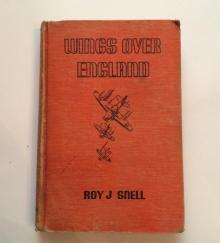 Wings over England
Wings over England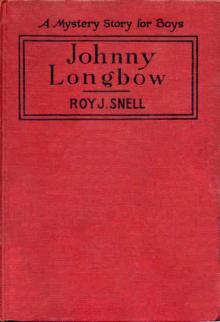 Johnny Longbow
Johnny Longbow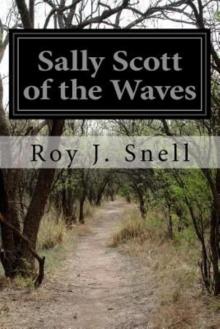 Sally Scott of the WAVES
Sally Scott of the WAVES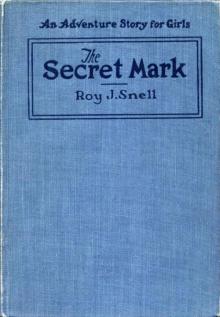 The Secret Mark
The Secret Mark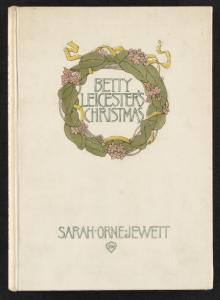 Betty Leicester's Christmas
Betty Leicester's Christmas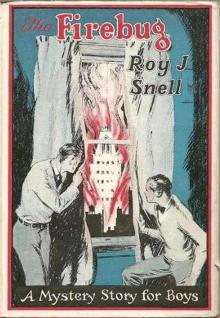 The Firebug
The Firebug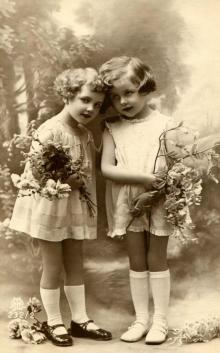 Minnie Brown; or, The Gentle Girl
Minnie Brown; or, The Gentle Girl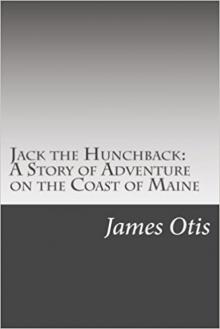 Jack the Hunchback: A Story of Adventure on the Coast of Maine
Jack the Hunchback: A Story of Adventure on the Coast of Maine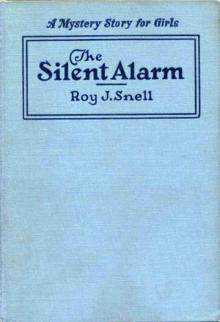 The Silent Alarm
The Silent Alarm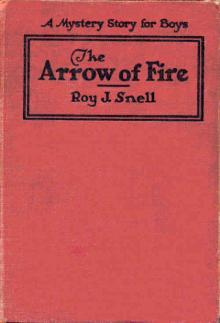 The Arrow of Fire
The Arrow of Fire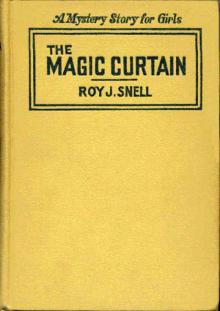 The Magic Curtain
The Magic Curtain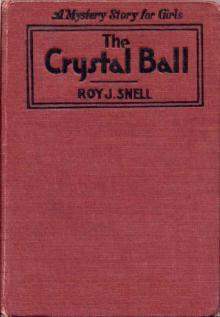 The Crystal Ball
The Crystal Ball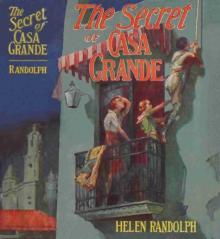 The Secret of Casa Grande
The Secret of Casa Grande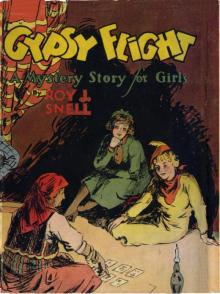 Gypsy Flight
Gypsy Flight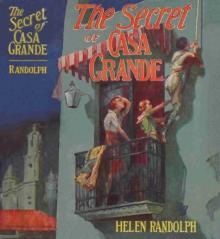 The Mystery of Carlitos
The Mystery of Carlitos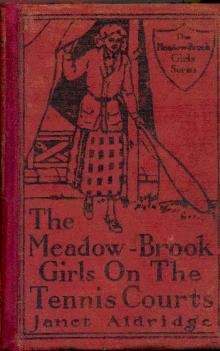 The Meadow-Brook Girls on the Tennis Courts; Or, Winning Out in the Big Tournament
The Meadow-Brook Girls on the Tennis Courts; Or, Winning Out in the Big Tournament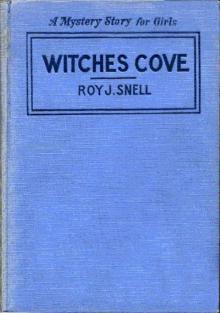 Witches Cove
Witches Cove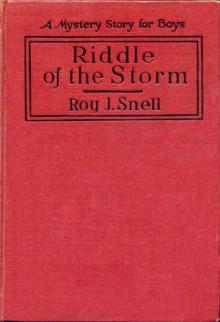 Riddle of the Storm
Riddle of the Storm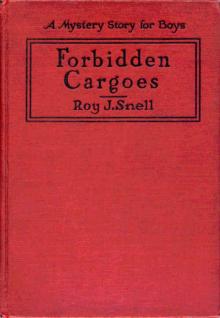 Forbidden Cargoes
Forbidden Cargoes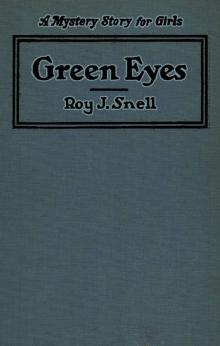 Green Eyes
Green Eyes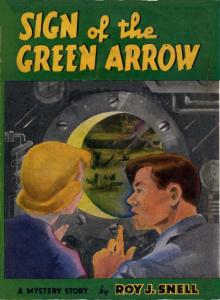 Sign of the Green Arrow
Sign of the Green Arrow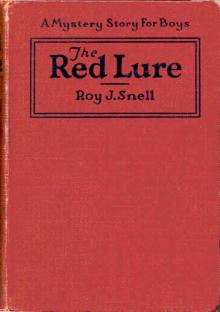 The Red Lure
The Red Lure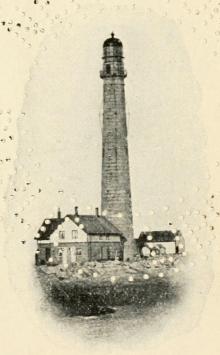 The Light Keepers: A Story of the United States Light-house Service
The Light Keepers: A Story of the United States Light-house Service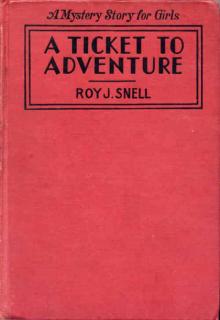 A Ticket to Adventure
A Ticket to Adventure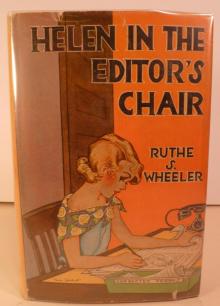 Helen in the Editor's Chair
Helen in the Editor's Chair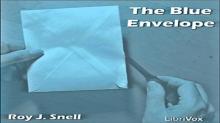 Blue Envelope
Blue Envelope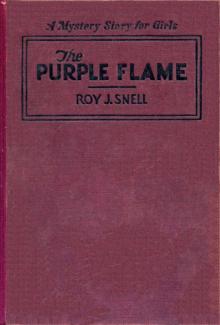 The Purple Flame
The Purple Flame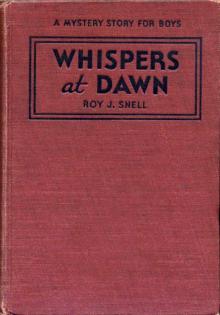 Whispers at Dawn; Or, The Eye
Whispers at Dawn; Or, The Eye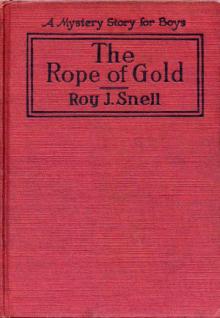 The Rope of Gold
The Rope of Gold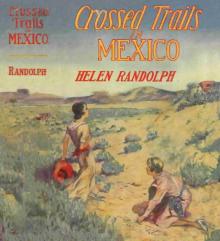 Crossed Trails in Mexico
Crossed Trails in Mexico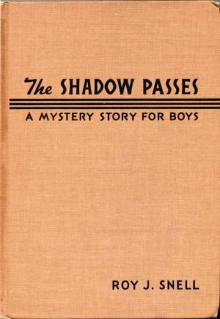 The Shadow Passes
The Shadow Passes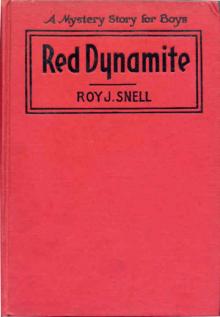 Red Dynamite
Red Dynamite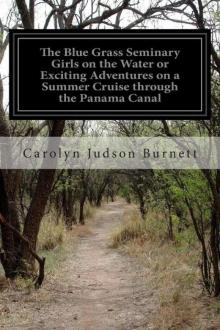 Blue Grass Seminary Girls on the Water
Blue Grass Seminary Girls on the Water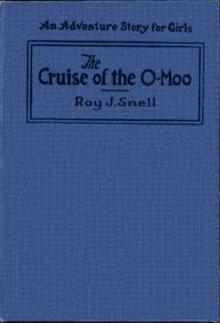 The Cruise of the O Moo
The Cruise of the O Moo